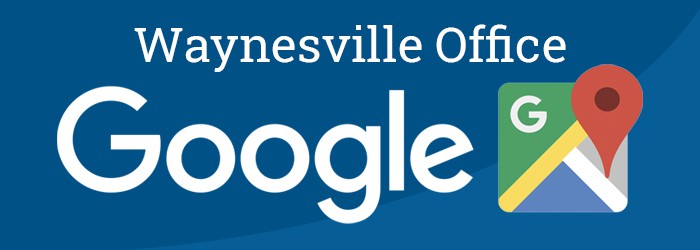Partition proceedings in North Carolina can be both legally complex and emotionally challenging. When co-owners of property—whether family members or business partners—find themselves at odds over how to manage or dispose of a jointly owned asset, understanding the available options becomes crucial. In North Carolina, partition cases generally lead to one of two outcomes: a partition in kind or a partition by sale.
Understanding Partition in Kind
Partition in kind refers to the process of physically dividing a property into separate, distinct parcels that each co-owner can claim. This method is particularly valuable when the parties involved have a strong emotional or historical connection to the property. For example, if the land has been in the family for generations or has sentimental value, a physical division might allow each co-owner to maintain their direct relationship with a portion of the property.
The Process
The process for a partition in kind typically begins with a co-owner filing a petition with the Clerk of Superior Court in the county where the property is located. Once the petition is filed, all co-owners are given formal notice, and an initial hearing is scheduled. At the hearing, evidence such as appraisals, surveys, and personal testimony is presented to demonstrate that a fair physical division is possible. If the court agrees, it may appoint commissioners or referees—local professionals experienced in land division—to oversee and map out the actual partition.
Pros and Cons
Advantages:
- Preservation of Legacy: Partition in kind allows co-owners to maintain a personal and historical connection with the land.
- Direct Ownership: Each owner ends up with a tangible piece of property, which can be important for those who want to keep the family homestead or an ancestral farm.
- Avoiding a Forced Sale: By dividing the property, co-owners avoid the possibility of the entire asset being sold to an outside party.
Disadvantages:
- Market Value Impact: Physically dividing the property can sometimes reduce its overall market value, especially if the resulting parcels are smaller and less appealing to buyers.
- Cost Considerations: Expenses such as survey fees, legal costs, and boundary marking can add up.
- Potential for Disputes: Determining an equitable division can lead to further disagreements, especially if the property does not naturally lend itself to a clean physical split.
Understanding Partition by Sale
Partition by sale offers an alternative when a physical division of the property is impractical or likely to diminish its value. Instead of dividing the land, the court orders that the entire property be sold—often through a public auction or private sale—and then distributes the proceeds among the co-owners based on their respective ownership shares. This approach is typically chosen when a fair physical division is not feasible or when the property’s unique features make a split unworkable.
The Process
In a partition by sale proceeding, the process similarly begins with the filing of a petition and notice to all co-owners. However, rather than determining a physical division at the initial hearing, the court evaluates the property’s condition, marketability, and the overall feasibility of a split. If the court concludes that a physical division would be impractical or unfair, it will order a sale. A court-appointed commissioner may then be tasked with overseeing the sale process to ensure that it is conducted fairly and transparently, often culminating in a public auction. After the sale, the proceeds are distributed among the co-owners according to their legal interests.
Pros and Cons
Advantages:
- Potentially Higher Sale Price: Selling the property as a whole can often attract better offers than selling fragmented pieces.
- Simplified Distribution: Dividing the proceeds among co-owners is generally more straightforward than dividing a physical asset.
- Clean Financial Break: A sale can provide a definitive end to a dispute, offering a clear financial outcome for all parties.
Disadvantages:
- Loss of Sentimental Value: For co-owners with strong emotional ties to the property, a sale may feel like a loss of heritage or family history.
- Uncertain Sale Conditions: If the property is sold under less-than-ideal conditions—such as a rushed public auction—it might fetch a lower price than expected.
- Distribution Disagreements: Differences in contributions, improvements made by individual co-owners, or disputes over valuation can complicate the distribution of the sale proceeds.

Key Differences
The fundamental difference between partition in kind and partition by sale lies in the end result. With partition in kind, each co-owner ends up with a physical portion of the property. This method is ideal for those who want to maintain a tangible connection to the land. In contrast, partition by sale results in a monetary distribution, which may be preferable for co-owners seeking a quick and clean financial resolution.
Impact on Property Value
When a property is physically divided, there is always a risk that the market value of each resulting parcel will be lower than that of the intact property. This reduction in overall value can be a significant concern, particularly if the property is located in an area where larger, unified parcels command a premium. Conversely, selling the entire property can preserve or even enhance its market appeal, provided that the sale is conducted under favorable conditions.
Emotional and Family Considerations
Emotional and familial attachments play a significant role in the decision between these two partition methods. A partition in kind often preserves a family legacy, allowing heirs to retain a piece of property that may have been in the family for generations. On the other hand, partition by sale might be the more pragmatic option in situations where the emotional ties are outweighed by financial needs or when co-owners have irreconcilable differences.
Court’s Discretion in North Carolina
North Carolina courts are guided by the principle of fairness and will carefully consider both the tangible and intangible aspects of a property when deciding on a partition method. The court’s decision will hinge on whether a physical division is feasible without significantly diminishing the property’s value or if a sale would better serve the interests of all co-owners. Factors such as property size, location, and existing market conditions can heavily influence this determination.
Factors Influencing the Choice Between Partition Methods
Property Characteristics
The physical attributes of the property—such as its size, shape, and location—are critical in determining the most suitable partition method. Large parcels of land with natural boundaries may lend themselves well to a partition in kind, while properties with complex layouts or significant built structures might be better served by a partition by sale.
Co-Owners’ Interests and Relationships
If everyone could agreed and get along, a Partition would not be required, so unfortunately our clients generally find themselves involved in a Partition when disagreements are firm.
Financial Considerations
Both the short-term and long-term financial implications must be carefully evaluated. For some, the immediate cash influx from a sale is highly attractive, particularly if they need liquidity. Others might prefer retaining a piece of the property, hoping that its value will appreciate over time. The cost implications associated with each method, including legal fees, appraisal costs, and any expenses related to the physical division, also play a crucial role.
Practicality and Fairness
Practicality is paramount. In some cases, a physical division might be technically possible but could lead to parcels that are too small or impractical for their intended use. Conversely, while a sale may seem straightforward, it might not adequately compensate co-owners who have invested significantly in the property or who have emotional ties to it. Balancing these considerations is essential to achieving a fair outcome.
Legal Considerations Under North Carolina Law
Statutory Guidelines and Court Procedures
In North Carolina, partition proceedings are governed by well-defined statutory guidelines found in the General Statutes. Any co-owner, regardless of the size of their interest, has the right to file a petition for partition. The case is typically handled by the Clerk of Superior Court, whose role is to review the evidence, conduct hearings, and determine the most appropriate method of partition based on the specifics of the case.
Appraisal and Valuation Issues
Accurate property valuation is central to both partition in kind and partition by sale proceedings. Courts rely on several appraisal methods—such as comparative market analysis, the income approach, and the cost approach—to establish a fair market value for the property. These valuations are critical not only for ensuring an equitable division of proceeds in a sale but also for determining whether a physical division can yield parcels of comparable value. Disputes over appraisals are not uncommon, and having a reliable, expert appraisal can make a significant difference in the outcome of a partition case.
Timelines, Documentation, and Notice Requirements
Strict procedural rules must be followed in partition cases. This includes filing the proper petition in the correct county, serving all co-owners with notice, and adhering to court-mandated timelines. Missing a deadline or failing to properly serve a co-owner can result in delays, additional costs, or even the dismissal of the case. Maintaining meticulous records and ensuring that all procedural requirements are met is essential to protect your interests.
Practical Tips for Co-Owners Facing Partition Proceedings
Preparation and Documentation
One of the best ways to safeguard your interests during a partition proceeding is to be thoroughly prepared. Keep detailed records of any improvements you’ve made to the property, as well as documentation of tax payments, insurance, and other expenses. These records can be crucial when it comes time to determine each co-owner’s share or when negotiating a settlement.
Negotiation and Mediation Strategies
Partition cases do not always have to be drawn-out legal battles. In many situations, co-owners can resolve their differences through negotiation or mediation. A neutral mediator can help facilitate discussions, identify common ground, and develop a mutually acceptable solution—whether that means agreeing on a partition in kind, a sale, or an alternative arrangement. Early communication and a willingness to compromise can often save time, money, and emotional stress.
Working Effectively with Professionals
The expertise of professionals—such as qualified appraisers, surveyors, and experienced attorneys—can be invaluable. Engaging professionals who understand the nuances of North Carolina partition law can help ensure that your case is handled efficiently and that the final outcome is as fair as possible. Their insights can also provide you with a clearer picture of whether a partition in kind or a partition by sale is the better option for your specific situation.

The Role of a North Carolina Partition Lawyer
Why Legal Representation Is Critical
Navigating the complexities of partition proceedings requires more than just an understanding of the law—it demands a strategic approach to managing disputes, handling detailed property records, and overcoming procedural hurdles. A North Carolina partition lawyer brings the expertise needed to guide you through every step of the process, ensuring that all filings are correct, all deadlines are met, and that your rights are fully protected.
How an Attorney Can Help
From the initial filing of the petition to negotiating settlements or representing you in court hearings, an attorney can be your most valuable ally. They can help you:
- Determine whether a partition in kind or a partition by sale is best suited to your circumstances.
- Assemble and present the necessary evidence, including expert appraisals and surveys.
- Navigate any disputes that arise during the proceedings, ensuring that the final division or sale is as equitable as possible.
Our Commitment
At Melrose Law, we pride ourselves on our client-centered approach. We understand that partition proceedings are not just about legal outcomes—they also involve significant personal and emotional considerations. Our goal is to work closely with you to protect your interests, provide clear guidance, and help you achieve a resolution that meets both your financial and familial needs.
If you find yourself facing a partition proceeding or if you’re unsure which option is best for your situation, it’s important to seek knowledgeable legal advice. Our team is here to help you navigate the complexities of North Carolina partition law with clarity and confidence. Contact us today for a consultation, and let us help you take the next step toward a fair and satisfactory resolution.


